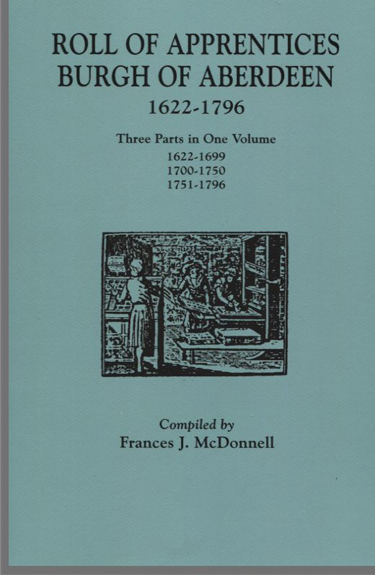Economic and social power in medieval and early modern Scottish burghs (towns and cities) lay in the hands of a self-perpetuating oligarchy called burgesses. The rights to operate a business and to vote were limited to these burgesses, who, in order to maintain their privileges, operated what today would be considered a “closed shop.” To become a burgess of the town of Aberdeen, one had to be the son of an existing Aberdeen burgess, marry the daughter of a burgess, buy the right, or serve an apprenticeship under a craftsman or merchant in the burgh. For an apprentice who did not qualify on other grounds, it was of paramount importance that his apprenticeship indenture be recorded to ensure that he became entitled in due course to apply to become a burgess.
The work at hand, originally published as three separate booklets, is derived from the Register of Indentures for Aberdeen spanning the period 1622 through 1796. The entries, which are arranged alphabetically by the surname of the apprentice, give the name of the apprentice’s father, place of birth, name and trade of burgess apprenticed to, length of apprenticeship, and the date entered in the register. Researchers hoping to discover the whereabouts of Aberdeen ancestors who (or whose kin) ultimately immigrated to the Americas would do well to consult this heretofore obscure source.


